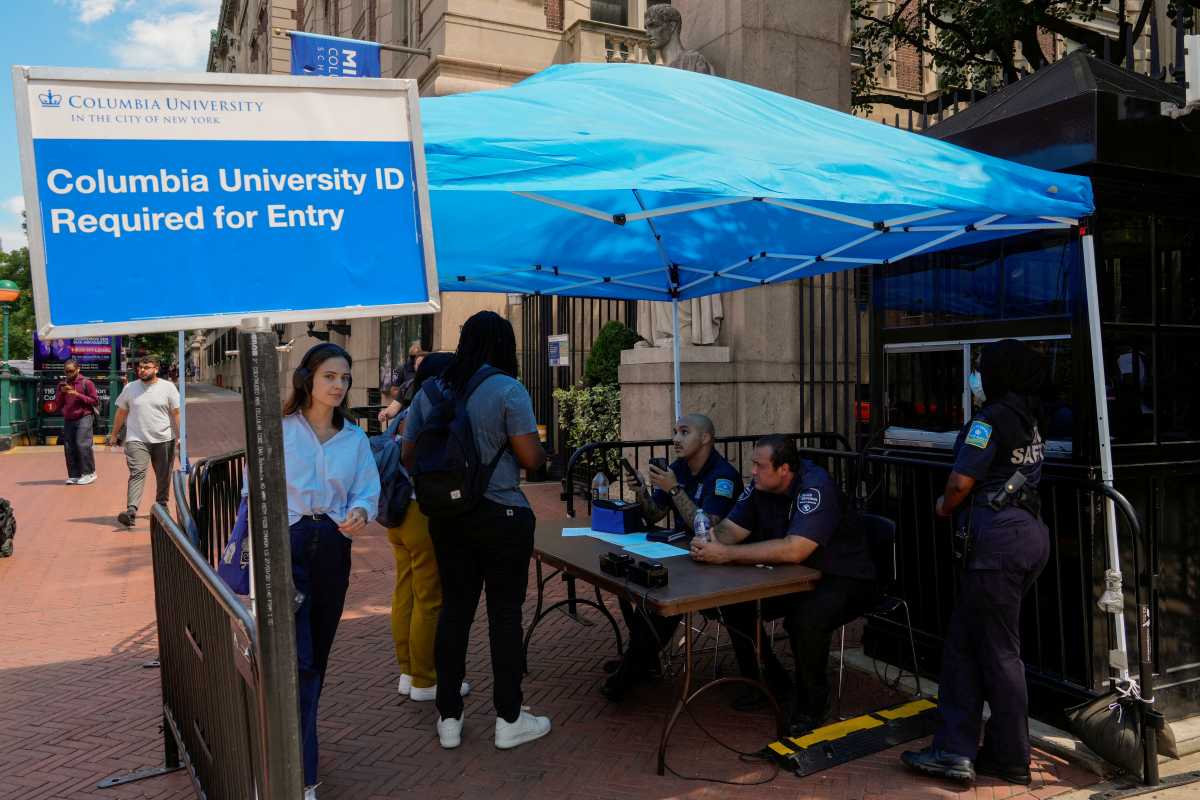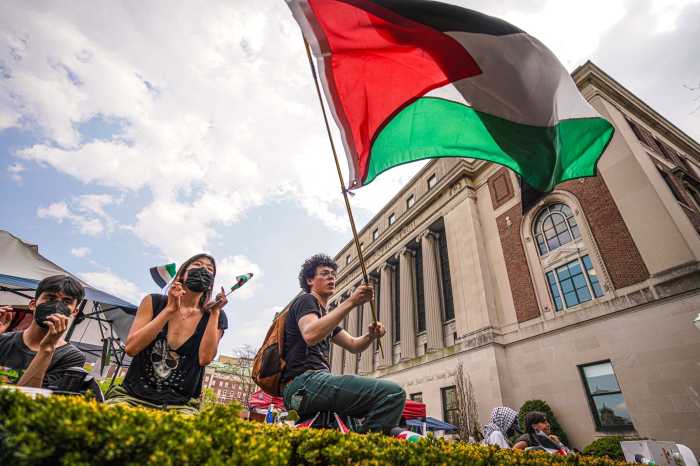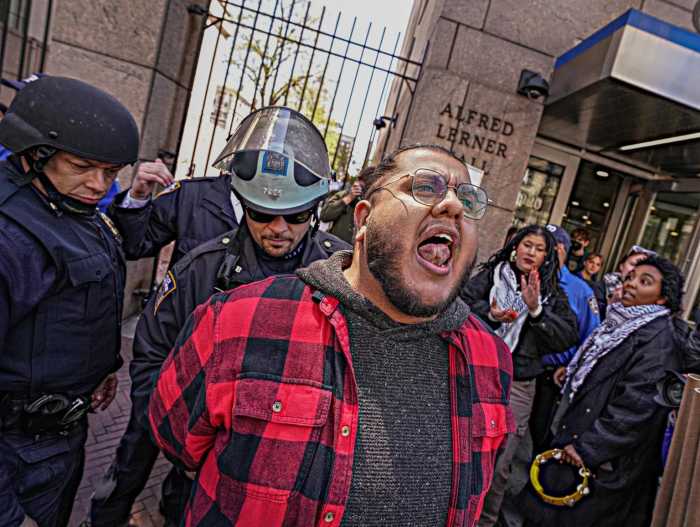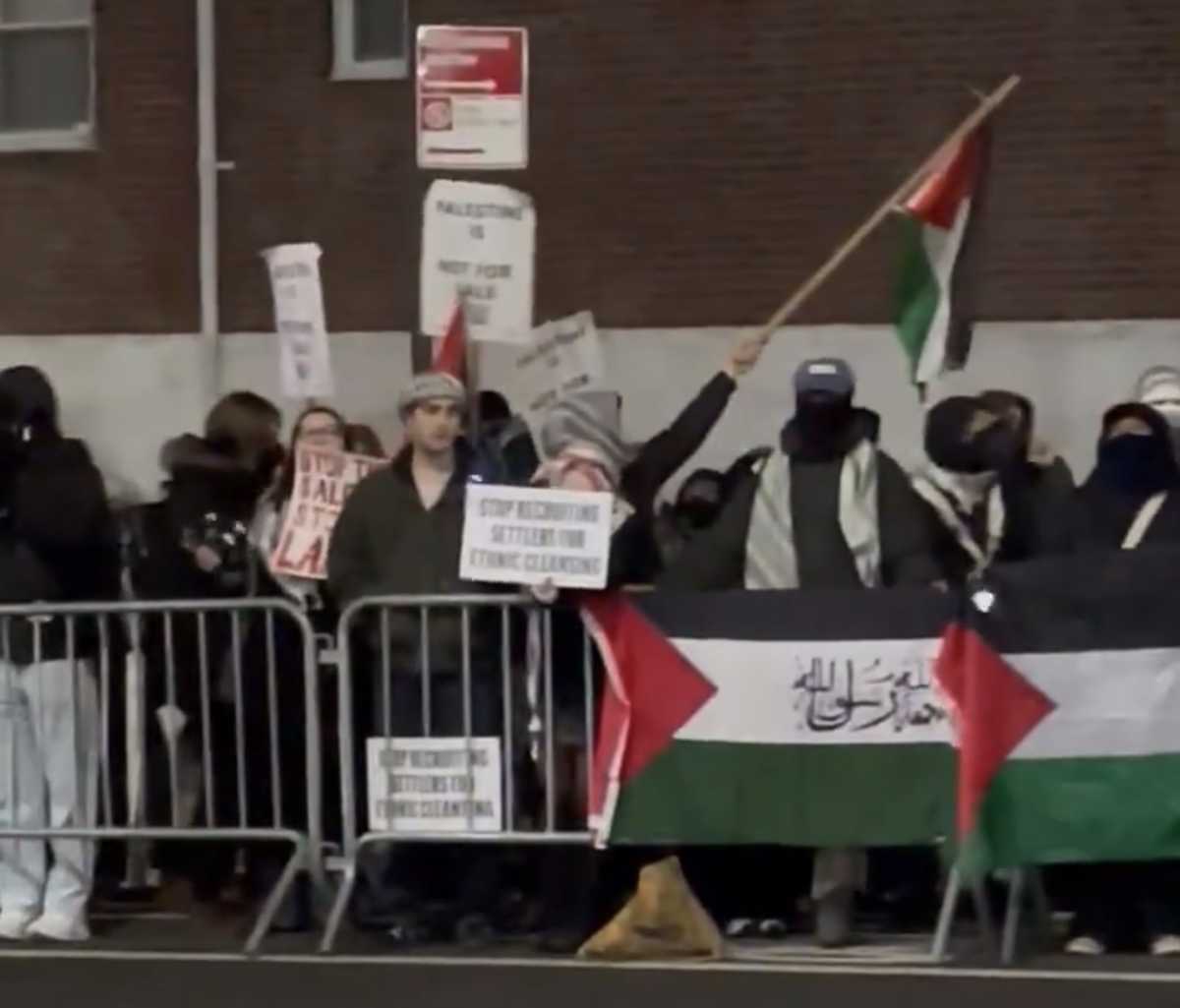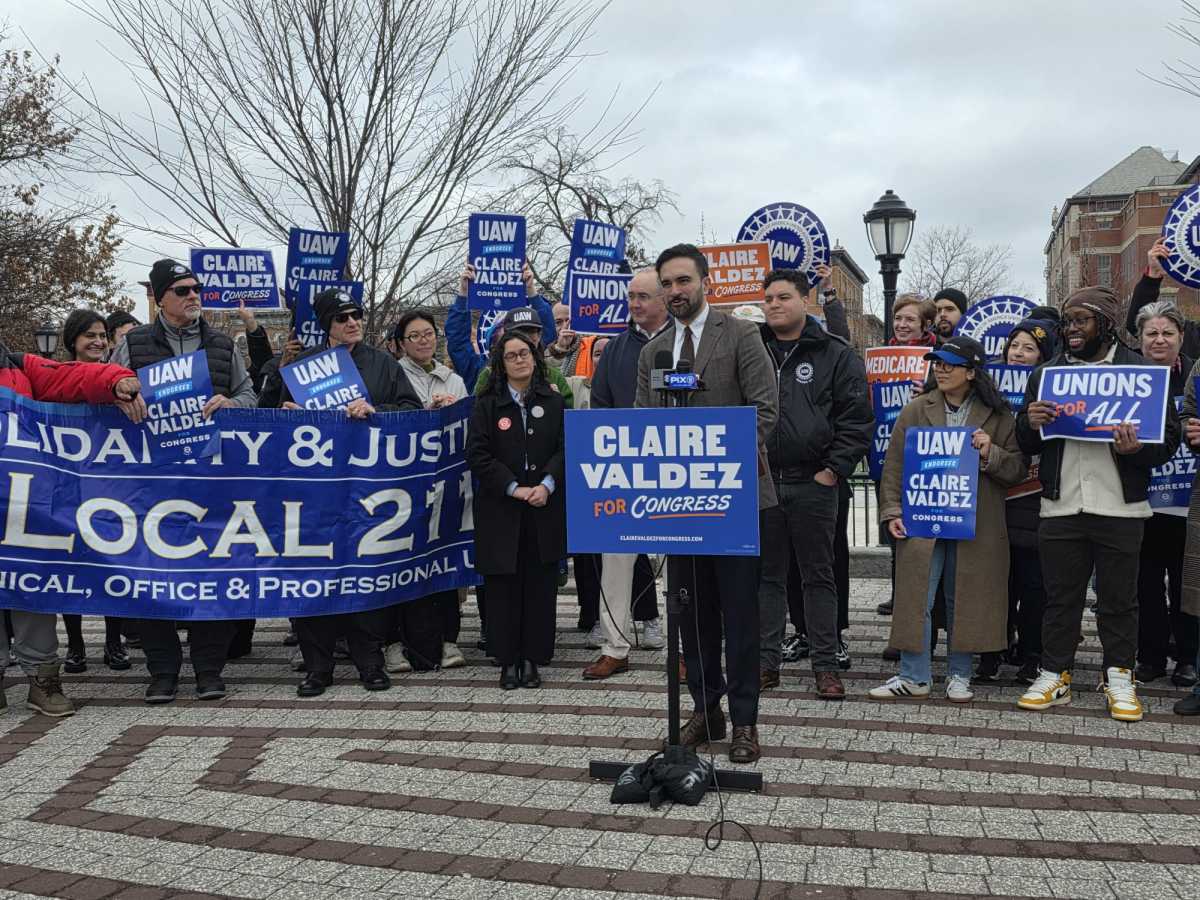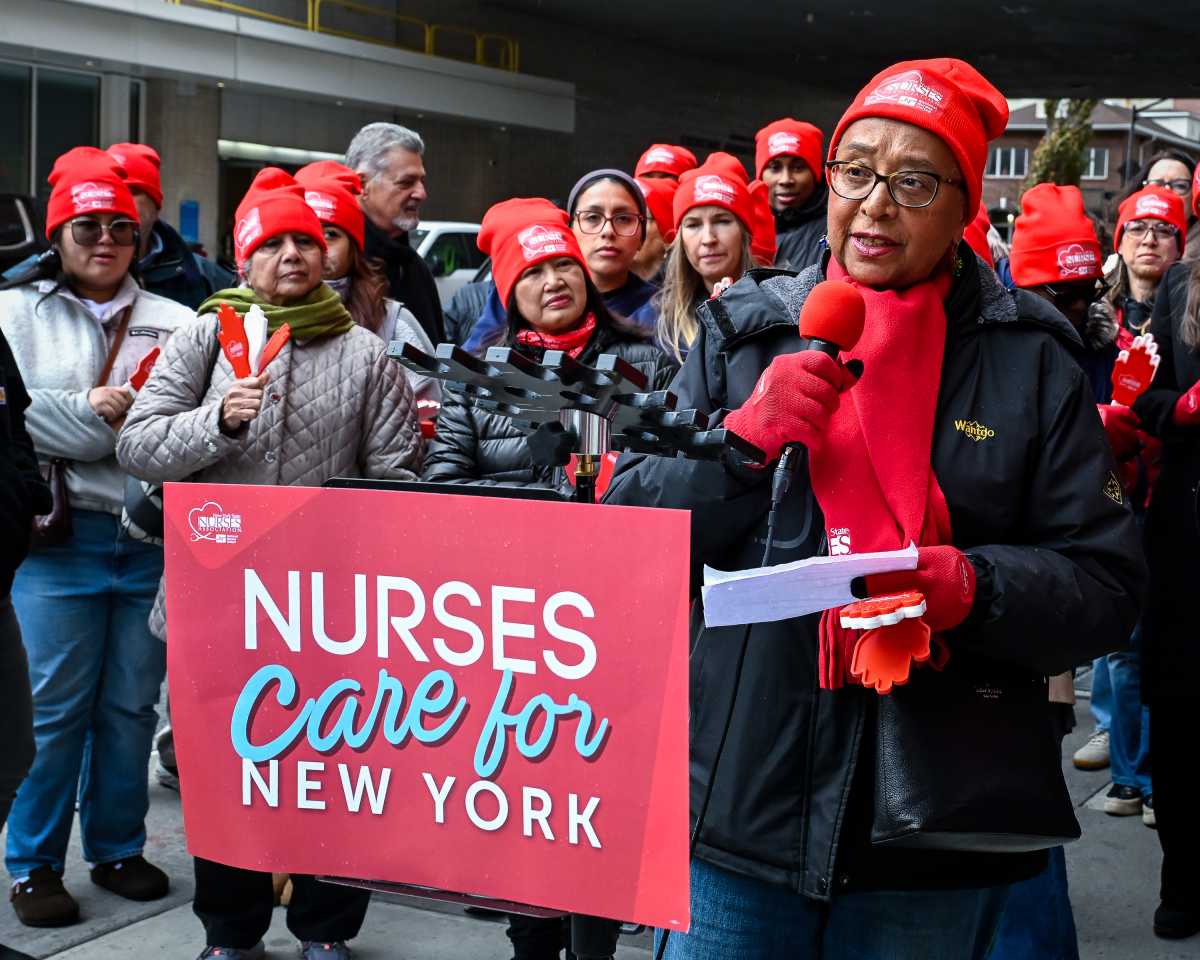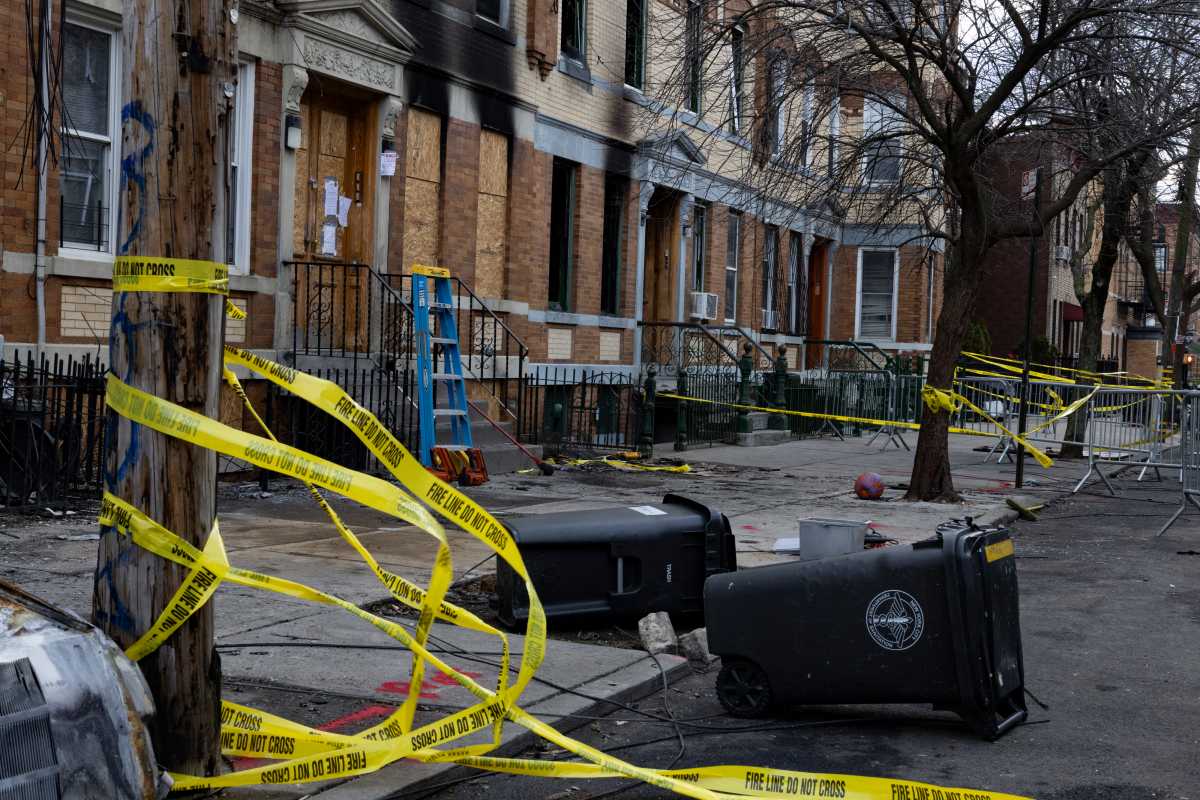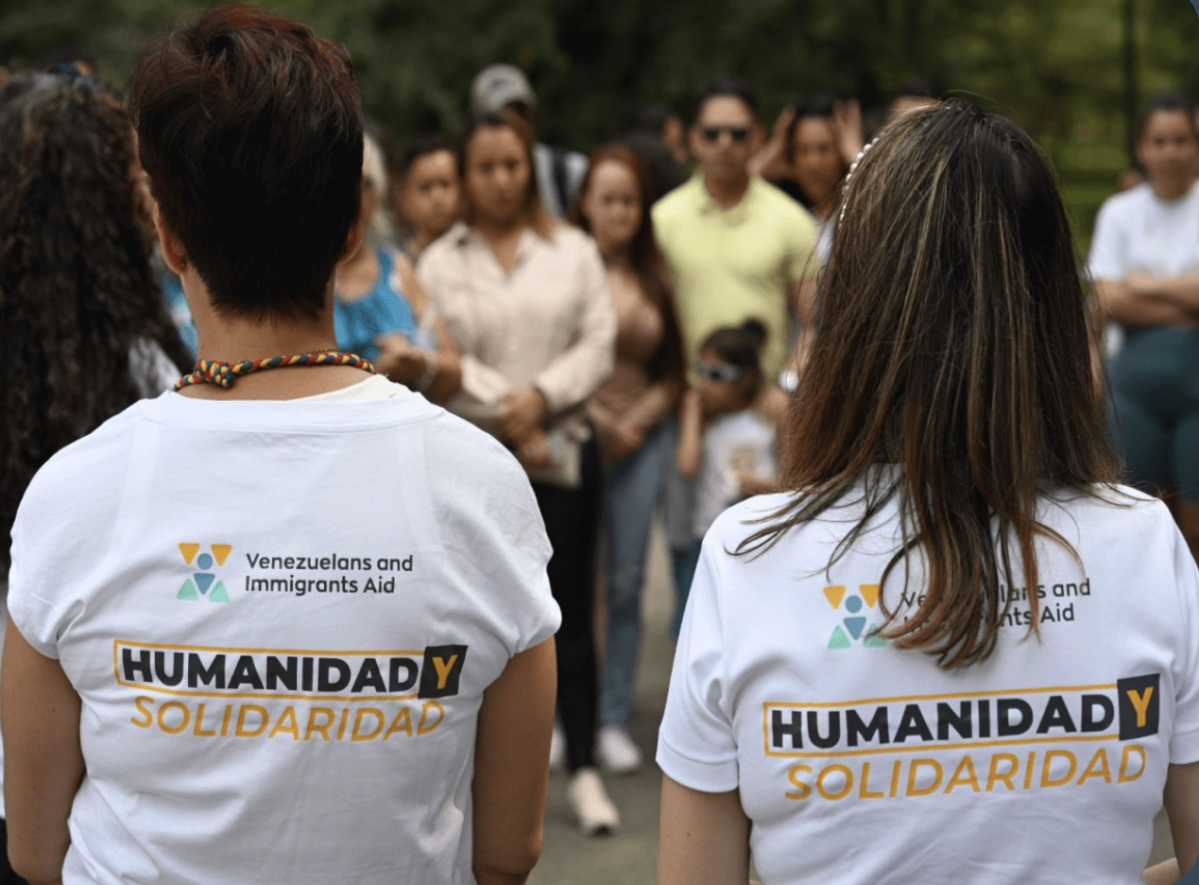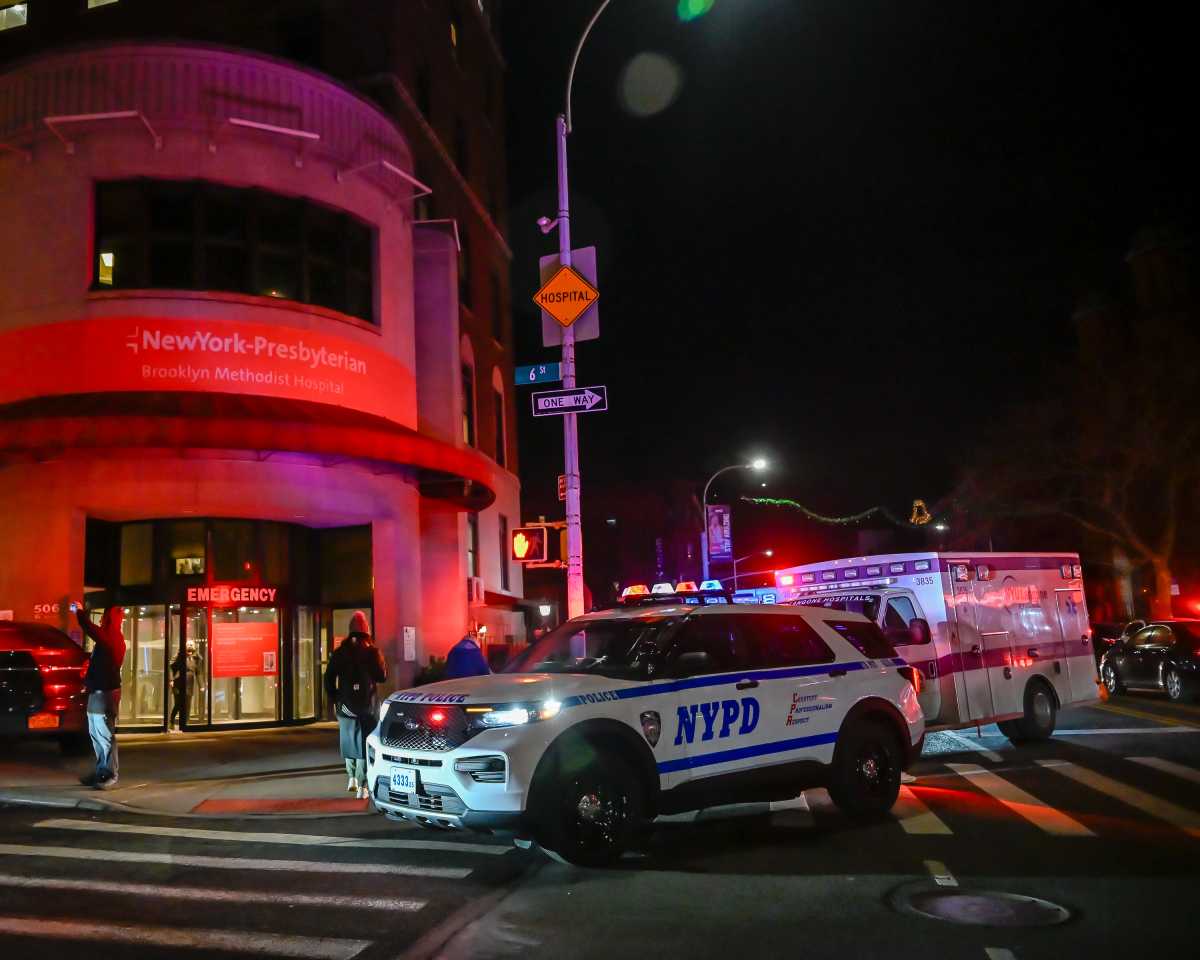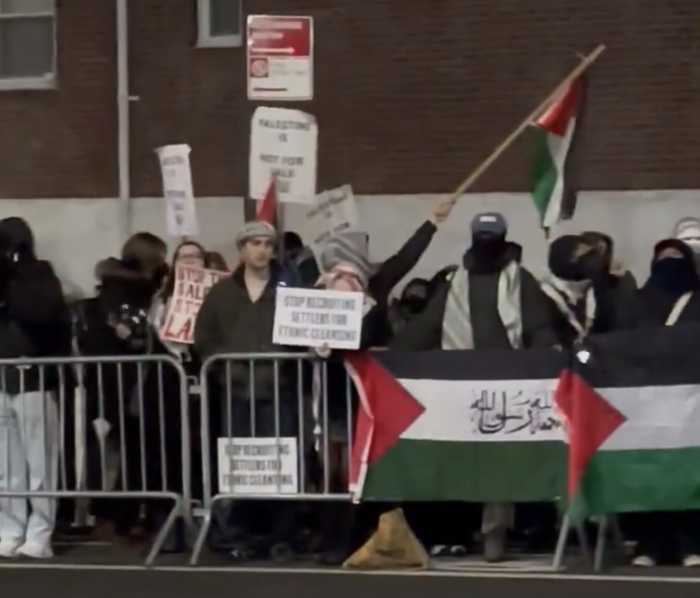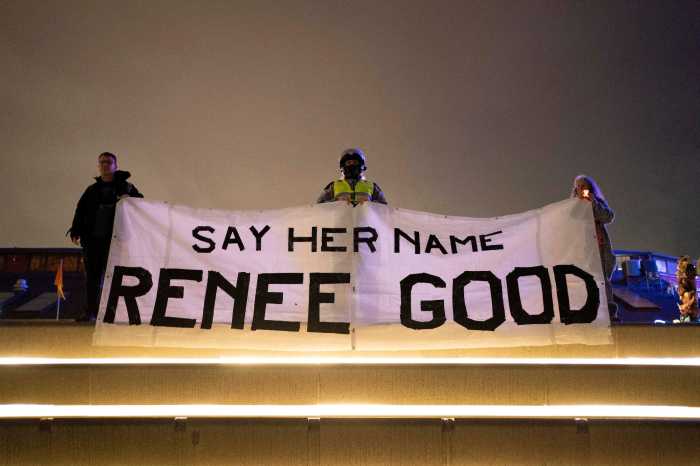Some colleges and universities in New York City are starting the 2024-25 school year with new or revised policies to combat hate and protect students months after campuses were rocked in the spring with violent on-campus protests and acts of antisemitism.
Faculty and staff at major NYC-based universities including Columbia University, City University of New York schools and New York University are stepping up efforts to combat hate and bias incidents on their campuses that surged during the demonstrations and in the wake of the Oct. 7, 2023 terrorist attacks in Israel.
A new Office of Institutional Equality at Columbia
Along with having a change in leadership, Columbia University has a series of new initiatives to help fight antisemitism and other forms of on-campus bigotry this year.
“There is no doubt that redoubling our commitment to addressing discrimination and harassment and the toll they take will be essential going forward,” interim school President Katrina Armstrong said in a written update to the school community.
The uptown university, which was the site of many controversial pro-Palestinian protests last semester, established a new Office of Institutional Equity. The office will be a centralized resource for addressing reports of discrimination and discriminatory harassment, including alleged violations of Title VI and Title VII, parts of the Civil Rights Act of 1964 that prohibit discrimination on the basis of race, color, national origin, religion and sex.
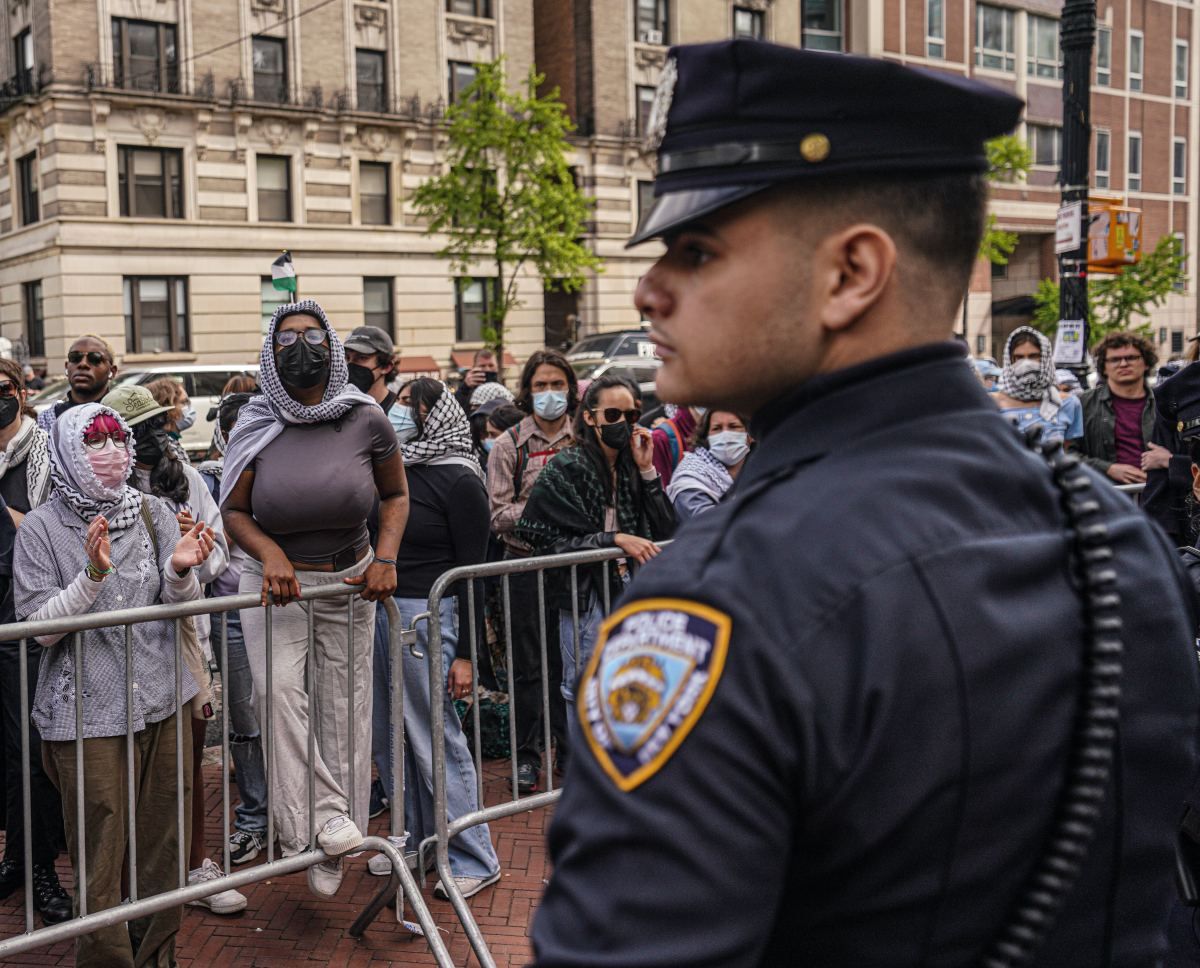
According to Columbia, the Office of Institutional Equality will also handle reports that involve alleged violations of Title IX and the University’s Gender-Based Misconduct Policy, as well as reported violations of the Protection of Minors Policy.
Students and staff who experience or witness discrimination, including antisemitism, anti-Arab and anti-Muslim acts, can file a report directly from the office’s website, institutionalequality.columbia.edu.
Another priority for the school is being able to effectively manage protests and demonstrations as it continues to keep active free speech and debate.
One way the school is doing this is through its Inclusive Public Safety Advisory Committee, which will be “reenergized” this year, Armstrong said.
The advisory committee, initially launched in 2022, will conduct listening sessions with the school community, though more information on how students and staff can participate is to be announced.
The Ivy League institution will also expand its Campus Climate Working group that brings together shared views from the sprawling campus’ more than two dozen schools.
Although details of the expansion are not clear yet, the purpose of the group is to focus on ways to “advance our shared understanding,” Armstrong said, through academic programming, workshops, training, community-building and skills-based programming.
CUNY’s new center to combat discrimination
CUNY, which saw City College besieged by spring protests, has a multi-pronged effort to combat hateful incidents this fall.
The school system announced a new Center for Inclusive Excellence and Belonging (CIEB) over the summer. The center aims to foster understanding between diverse communities on campus. According to CUNY officials, it will launch by Oct. 1 this year.
“The Board of Trustees of the City University of New York believes in the dignity of all human beings regardless of ethnicity, race, color, gender, national origin, religion and disabilities,” CUNY Board of Trustees Chair William C. Thompson Jr. said “This Center for Inclusive Excellence and Belonging will centralize this work so there is consistency and accountability on all campuses to make sure students, faculty and staff are protected and respected. We intend to be a national leader in this space.”
The center will oversee policies related to discrimination, harassment, bullying and hate crimes. It will also act as the administrative arm in the oversight of processing, monitoring and responding to all complaints related to the violation of the university policies on non-discrimination and harassment including Title VI related complaints.
Training for new chief diversity officers, annual orientation programs on cultural sensitivity-related issues for public safety officers are part of the center’s initiatives, too.
Many of these initiatives, including a campus climate survey, were the result of a voluntary agreement between CUNY and the U.S. Department of Education related to discrimination complaints that plagued the school system last semester.
Code of conduct at NYU, and use of term ‘Zionist’
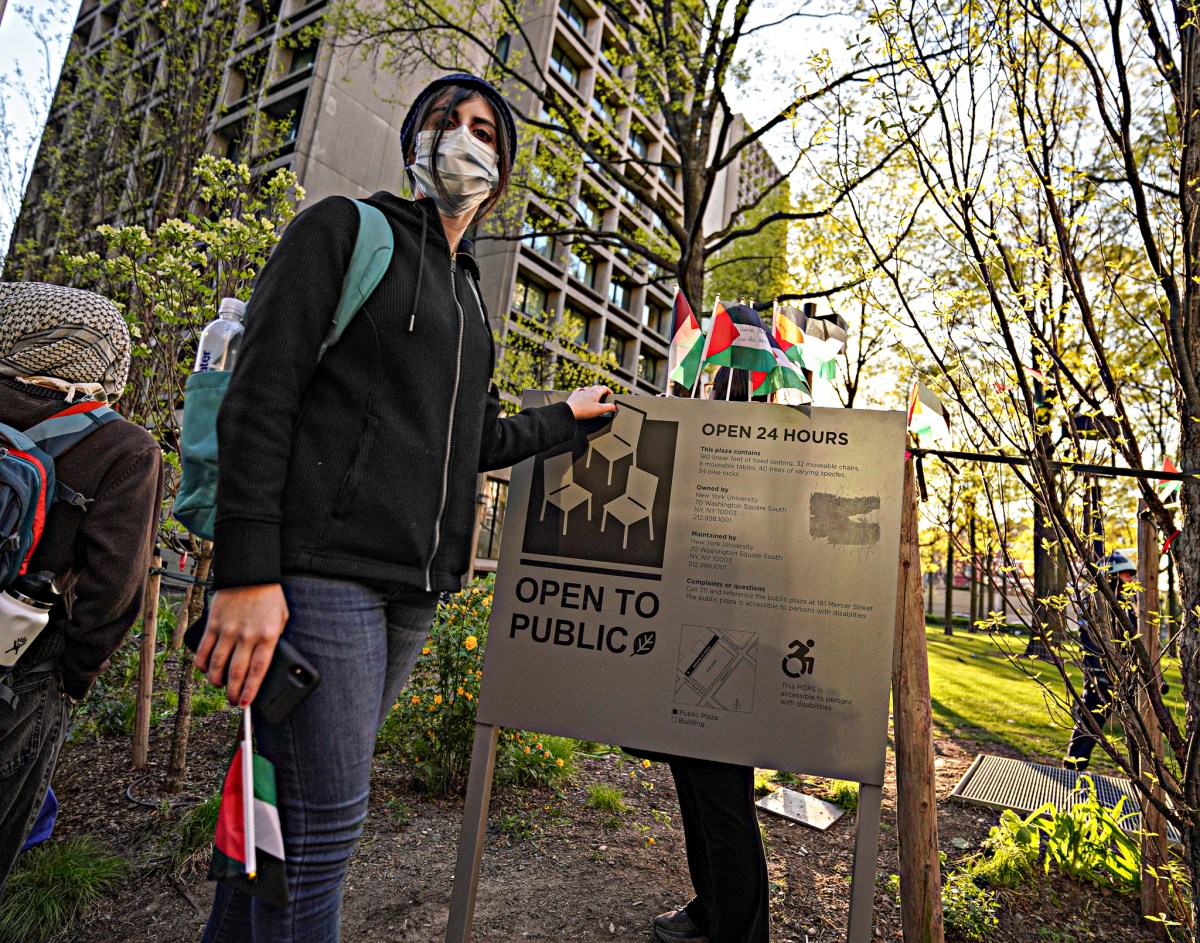
Before classes start on Sept. 3, NYU community members will receive communications emphasizing the university’s rules, guidelines and expectations for conduct. Student groups will be trained on those rules.
And within the school’s updated Guidance and Expectations on Student Conduct is a section on the university’s Non-Discrimination and Anti-Harassment Policy and Procedures for Students (NDAH).
The NDAH, which is grounded in the school’s legal obligations, states that using code words like “Zionist” does not eliminate the possibility that a person’s speech violates the policy.
In fact, anything that would violate the NDAH if targeting Jewish or Israeli people can also violate the policy if directed toward Zionists.
The policy illustrates some examples of what this means:
“…excluding Zionists from an open event, calling for the death of Zionists, applying a ‘no Zionist” litmus test for participation in any NYU activity, using or disseminating tropes, stereotypes, and conspiracies about Zionists, demanding a person who is or is perceived to be Jewish or Israeli to state a position on Israel or Zionism, minimizing or denying the Holocaust, or invoking Holocaust imagery or symbols to harass or discriminate.”
John Beckman, a spokesperson for NYU, said the school has been preparing for the fall semester throughout the summer.
“Preparing for challenges in the fall has been a focus of sustained attention over the summer for NYU’s leadership,” Beckman said.
NYU, for the first time, will hire a Title VI coordinator who will be responsible for ensuring the “fair and equal application” of the school’s policies.
“In addition, there are a number of new faculty and other hires who we believe will help in understanding and combating antisemitism,” Beckman said, adding that the school will also update existing employee trainings to cover all forms of discrimination, including antisemitism.
Over the summer, NYU also held more than 20 listening forums involving approximately 300 faculty, students and staff members. The sessions included community members who have been deeply involved with post-Oct. 7 issues.
“What we heard is that the vast majority are looking for a reset, that includes listening and productive engagement,” Beckman said.
NYU plans to share findings from those sessions between now and early in the semester. The school will also provide training to faculty and staff on conflict and difficult conversations that arrive in the classroom.



